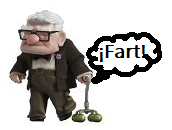they made their homes in the quiet roads.
Did something get lost in translation?
How can they make their homes in a road? Quiet or not?
I'm not doubting your word, I just don't quite get that phrase @fermentedphil
You are viewing a single comment's thread from:
Oh yes sorry! My native language we say phrases like "in the road" which does not always literally mean in the road. I am fascinated by language and this is something interesting you have pointed out and I think some others as well. In my native home language, things might translate as literal and then mean something weird like the road example. I think the more appropriate english translation I should have used is something like: in quiet streets, they often hang out and raise their chicks as there might be plenty of shelter and food.
Yes, I saw the (to me) more clear English words in the Wikipedia article.
I too, love languages, although I don't KNOW anything but English, and American English at that.
But I DO have a fair vocabulary of Spanish, with a smattering of German, Italian, Hebrew and Japanese words picked up over the years.
I'm an old fart
Who has never left the USA
That is awesome though! I am stuck with Afrikaans (very similar but also very different from Dutch) and English. There is still a huge cultural divide in South Africa so only a few people go through the trouble to learn some of the Bantu languages like Xhosa or Zulu. I wish I could speak them but my ability to gain a new language is so bad. I have worked in kitchens (as a baker) beside fellow Africans and I have always tried to learn Xhosa but always fail.
Is Xhosa the one spoken by the Kalahari Bushmen? With all the clicks and pops?
To me, that is one of the most intriguing languages. It cannot be in any way related to any of the "Indo-European" languages.
Basque is another oddity, spoken (but slowly dying out) by the Basque people who live in extreme north Spain. It too, doesn't seem to derive from any Indo-European languages. Some have speculated that it is/was the language of Atlantis!
This is so interesting!! It would be fascinating to dig a bit into this. Thanks so much. No, that is khoi or nama or other click languages. But Xhosa has clicks in them but not as many as from the other languages.